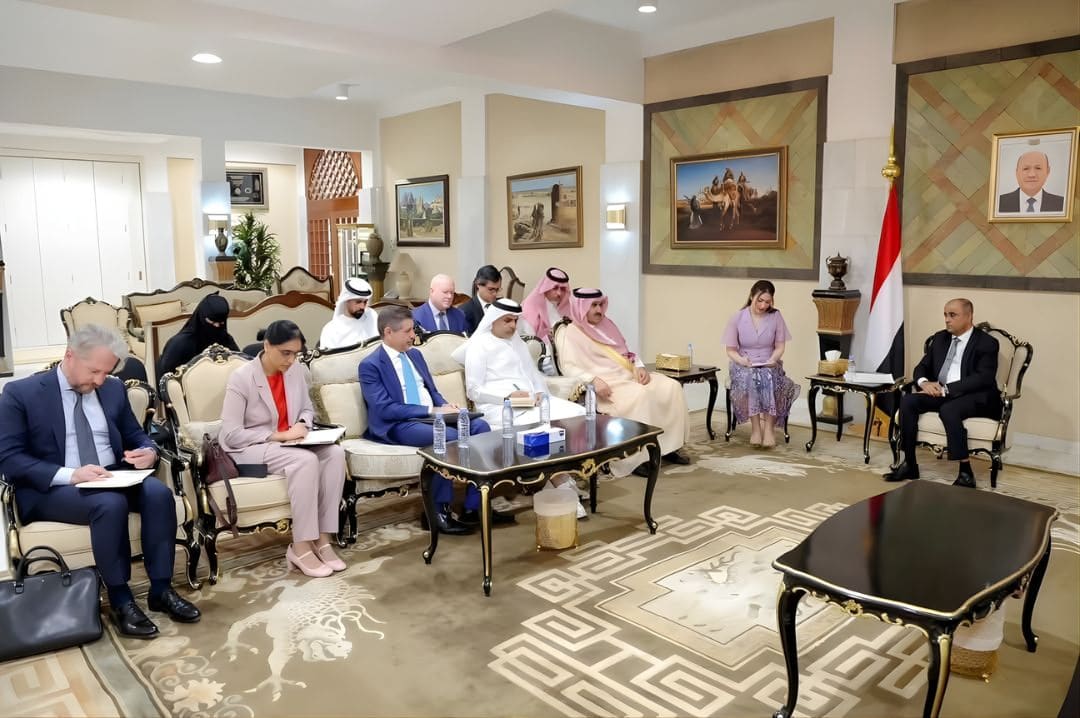
Yemen’s Prime Minister Salem Saleh bin Buraik meets with ambassadors of Saudi Arabia, the UAE, the United Kingdom, the United States, and the French chargé d’affaires to discuss reforms and economic recovery efforts, Riyadh, October 17, 2025 — Yemeni
18-11-2025 at 5 PM Aden Time
|
|
Aden (South24 Center)
The International Quartet on Yemen — the United States, the United Kingdom, Saudi Arabia and the United Arab Emirates — has informed the Presidency of the Presidential Leadership Council (PLC) that it is preparing to impose international sanctions on any officials obstructing the government’s economic and financial reform programme, according to officials briefed on the discussions.
Reuters reported that the measures being prepared would specifically target governors “considered to be shirking their duty to remit revenues to the government and the central bank after the deadline for doing so has expired or is about to expire.” The Quartet’s message comes as the PLC seeks to enforce a recently approved Economic Reform Priorities Plan designed to restructure public revenues, unify financial channels and end off-budget collection across the country.
The plan requires governorates to transfer all revenues to the government’s general account at the Central Bank of Yemen in Aden, unify customs and tax entry points, abolish illegal fees and regulate newly established maritime collection points. Donors say compliance is crucial for stabilising the currency and restoring confidence in the country’s fiscal system.
The Quartet’s intervention reflects growing international concern over stalled reforms at a time when Yemen is facing one of its worst fiscal and liquidity crises since the war began in 2015. Central Bank officials in Aden told Reuters that the government is experiencing “the worst fiscal and financing crisis” amid a halt in external grants and delays in Gulf aid. Saudi Arabia deposited $90 million on 16 November as part of a previously announced $370 million emergency support package.
In its Fall 2025 Yemen Economic Observatory report, the World Bank said the country is undergoing one of its deepest economic shocks in years, with real GDP expected to contract by 1.5% and more than 60% of households struggling to secure food. The Bank noted that government revenues had fallen by 30% compared to last year, while the cost of a basic food basket rose 26% in June amid sharp currency volatility. The UN’s humanitarian response plan remains only 19% funded out of the $2.5 billion requirement — the lowest level in more than a decade.
The World Bank warned that continued blockades on oil exports, depletion of foreign reserves and declining donor support leave the government with limited ability to maintain essential services unless reforms advance and political deadlock eases.